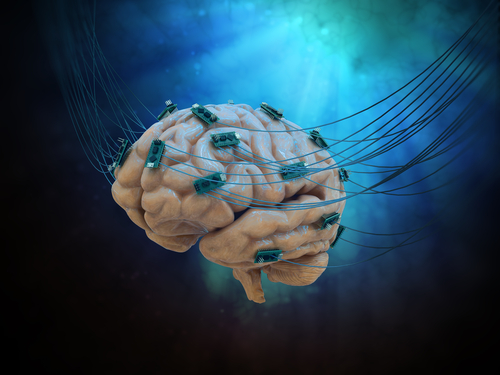FDA Extends Abbott’s Infinity DBS System Approval to Target Additional Brain Region

The U.S. Food and Drug Administration (FDA) has expanded Abbott’s Infinity Deep Brain Stimulation (DBS) system approval to target a brain region critical for motor functions — the globus pallidus — as a way to lessen motor symptoms in Parkinson’s disease patients who still show impairments after medication.
This extended approval makes Abbott’s Infinity the only directional DBS system approved to target all three main brain regions used to treat Parkinson’s, essential tremor and movement disorders: the globus pallidus, the subthalamic nucleus, and the ventral intermediate nucleus.
DBS is an invasive surgical technique in which thin wires are implanted in the brain to deliver electrical pulses to certain areas. It is intended to ease motor symptoms in patients for whom standard medications, such as levodopa, are not effective, and stave off long-term motor complications, including tremors and dyskinesia (involuntary movements).
Traditional DBS systems are “omnidirectional,” meaning they don’t target specific parts of the brain. Abbott’s DBS system differs from others in that it’s designed to steer electrical current toward specific parts of the brain to lessen symptoms such as tremors.
Because the stimulation is more targeted, patients should be able to get meaningful symptom relief with less stimulation.
“The internal segment of the global pallidus, or GPi, is a well-established valuable DBS target for the management of the motor signs associated with Parkinson’s disease, and is a preferred target for many patients, particularly for those with troublesome medication induced dyskinesia,” Jerrold Vitek, MD, PhD, said in a press release. Vitek is director of the University of Minnesota Udall Center of Excellence for Parkinson’s Research, .
The Infinity DBS system uses a wireless Apple consumer device that allows doctors to perform upgrades and optimize programming settings without the need for surgery. Patients also are able to control their Infinity DBS System via a wireless touch controller.
“This approval expands the options for patients to tailor treatment to their unique needs, with the added benefits of being able to target precise areas and utilizing a patient-friendly iOS device,” Vitek said.
The ongoing PROGRESS trial (NCT02989610) is evaluating Abbott’s Infinity DBS system for treating Parkinson’s. The trial’s primary goal is to compare the therapeutic effectiveness of the Infinity DBS system compared to a conventional omnidirectional system.
Preliminary results from 66 Parkinson’s patients evaluated after three months of using the Infinity DBS system showed that most (89.4%) had a wider therapeutic window — an average increase of 35% — accompanied by an average decrease of 30% in the amount of stimulation needed to attain a therapeutic effect, compared with patients who were using a conventional omnidirectional system.
“Abbott’s PROGRESS study has led the way in establishing the value of directional DBS systems for targeted areas of the brain,” said Binith Cheeran, MD, director of medical affairs, deep brain stimulation, at Abbott.
“The approval of Abbott’s Infinity DBS system with targeted stimulation is a significant advancement for people living with Parkinson’s disease and their care teams. The ability to optimize the programming for each individual opens the door for a new standard of care for DBS therapy,” he said.
Abbott’s Infinity DBS system is available in nearly 30 countries.






